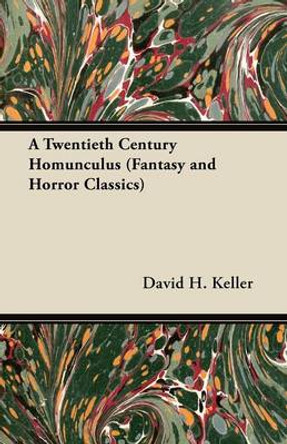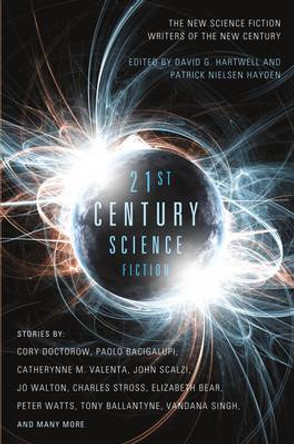Description
David J. Leigh explores the innovative influences of the Book of Revelation and ideas of an end time on fiction of the twentieth century, and probes philosophical, political, and theological issues raised by apocalyptic writers from Walker Percy, C. S. Lewis, and Charles Williams to Doris Lessing, Thomas Pynchon, Don DeLillo.
Leigh tackles head on a fundamental question about Christian-inspired eschatology: Does it sanction, as theologically sacred or philosophically ultimate, the kind of "last battles" between good and evil that provoke human beings to demonize and destroy the other? Against the backdrop of this question, Leigh examines twenty modern and postmodern apocalyptic novels, juxtaposing them in ways that expose a new understanding of each. The novels are clustered for analysis in chapters that follow seven basic eschatological patterns-the last days imagined as an ultimate journey, a cosmic battle, a transformed self, an ultimate challenge, the organic union of human and divine, the new heaven and new earth, and the ultimate way of religious pluralism.
For religious novelists, these patterns point toward spiritual possibilities in the final days of human life or of the universe. For more political novelists-Ralph Ellison, Russell Hoban, and Salman Rushdie among them-the patterns are used to critique political or social movements of self-destruction. Beyond the twenty novels closely analyzed, Leigh makes pertinent reference to many more as well as to reflections from theologians Jurgen Moltmann, Zachary Hayes, Wolfhart Pannenberg, and Paul Ricoeur. Both a guidebook and a critical assessment, Leigh's work brings theological concepts to bear on end-of-the-world fiction in an admirably clear and accessible manner.
About the Author
David Leigh, S.J., is professor of English at Seattle University. He is the author of numerous articles as well as Circuitous Journeys: Modern Spiritual Autobiography.
Reviews
"David J. Leigh's lucid and informative book conducts a lively travelogue among novels, modern and postmodern, as well as a dialogue between literature, literary theory, and contemporary theology, and philosophy. His shrewd and humane account reminds us how fundamental and pervasive in cultural representation is the perception and creation of an 'end'-as activating goal, as pleasurable climax, and as a meaning-laden, values-confirming 'ultimate'." -Judith Wilt, Newton College Alumnae Chair in Western Culture, Department of English, Boston College
"In his new book, David J. Leigh uses an interdisciplinary lens to scrutinize the place of eschatology and apocalypse in literature. He mines a wonderfully diverse array of case studies-from science fiction, to fantasy, to postmodernism, to postcolonial genres-to find rich theological readings bearing on twentieth-century concerns." -Mark Bosco, S.J., Loyola University Chicago
"David Leigh brings his impressive background in philosophy, theology, and literary theory to bear on twenty writers of the twentieth century who, through apocalyptic imagery and motifs, explore ultimate reality and end time. While painstakingly aware of the many differences among these writers, he convincingly argues that these texts use a variety of genres to embody in concrete and imaginative ways human experiences of ultimacy." -Philip Rule, S.J., Holy Cross College
"David Leigh has made a major contribution to our understanding of the apocalyptic tradition in 20th century fiction. Along the way, Leigh introduces us to a remarkable array of fiction-from science fiction to literature of death, to specific African American works like Frederick Douglass's Narrative, Ralph Ellison's The Invisible Man, and to examples from Post-Colonial fiction like Salman Rushdie's Midnight's Children and Shusaku Endo's Deep River. Leigh's work is required reading for students interested in connections between religion and literature." -John L. Mahoney, Rattigan Professor of English, Boston College
"Conducting readings of twenty major 20th century novels and two autobiographies in the English language, Leigh proposes to examine two fundamental questions: the innovative ways in which modern texts have used the apocalyptic tradition as found in the biblical Book of Revelation and other classic works dealing with the end of the world and the ways these literary apocalypses raise issues that call for philosophical and theological reflection." -Reference & Research Book News
"Leigh aims in this very learned monograph to discern how selected modern novels have 'used the Apocalyptic tradition as found in the book of Revelation and other classic works,' and issues raised by these novels that 'call for theological and philosophical reflection.' . . . This authoritative literary criticism is recommended to academic libraries supporting graduate programs in literature." -Catholic Library World
"David Leigh has written Apocalyptic Patterns in Twentieth-Century Fiction on something of the sweeping scale of apocalyptic literature itself. Concentrating on the century just ended, it explores 21 novels and two autobiographies, examines American, African American, British, and postcolonial literature, includes modernist and postmodernist texts, and embraces genres that range from personal narrative to speculative fiction. Leigh's readings place literature and theology in a dialogue that he himself is now in an excellent position to develop." -Theological Studies
". . . Leigh succeeds in providing his readers with a general survey of twentieth-century novels that retrieve the thematic and formal elements of premodern apocalyptic literature. The primary accomplishment of this book lies in its demonstration of how extensively and deeply apocalyptic elements are woven into the fabric of twentieth-century fiction. . . . [T]he reading methodology of this book is worthy of the attention of scholars and students interested in the interrelation and interaction of religion and literature." -Journal of Religion
Book Information
ISBN 9780268205768
Author David Leigh
Format Hardback
Page Count 272
Imprint University of Notre Dame Press
Publisher University of Notre Dame Press
Dimensions(mm) 229mm * 152mm * 19mm
Details
Imprint: |
University of Notre Dame Press |









